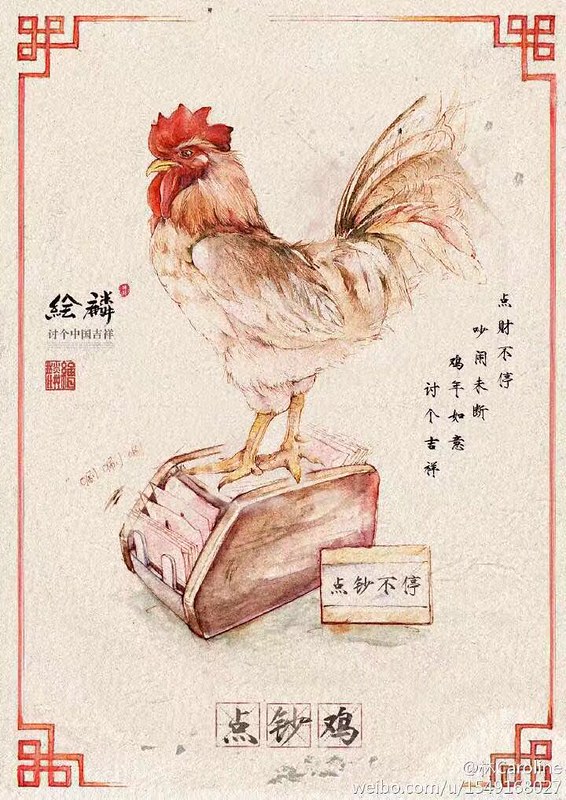Happy Year of the Rooster
Happy Year of the Rooster/Cock/Chicken! Just as the English word “cock” has multiple meanings, the Chinese word 鸡 (“chicken”) does as well. By itself, it can mean “prostitute,” but the same sound “jī” is also part of the Chinese word for, well, “cock.” I guess I’m friends with a bunch of upstanding Chinese folk, because I didn’t see the many puns I feel I could have for this year’s barrage of Chinese New Year greetings.
Here’s one tame pun I did see this year:
So the original word is 点钞机, “money counting machine.” Substituting 鸡 (“chicken”) for 机 (“machine”) doesn’t change the sound at all, but 点钞鸡 falls right in line with the Chinese proclivity for wishing financial success in the New Year. And you can totally imagine a money counting rooster.


Thanks for the interesting and informative post. I have long noticed that, in the English-speaking arena, “rooster” seems to be the more widely used rendition over the other two that you mentioned when speaking about this year of the twelve-year cycle. While 鸡 / 雞 / 鷄 is translated as “chicken” in most other contexts, I guess “rooster” comes off as somewhat more refined than the other two.
Here’s a chicken phrase that comes to mind. “嫁鸡随鸡嫁狗随狗” This phrase means, according to the mdbg translator as follows: if you marry a chicken follow the chicken, if you marry a dog follow the dog (idiom). However, ichacha.net translates it as follows: “once a girl has attached herself to one man, she must be faithful to him forever regardless of all circumstances — advise a girl to be contented with the man she has married.; a woman follows her husband no matter what his lot is.”
Interesting… Not exactly a Chinese New Year wish, though! 🙂